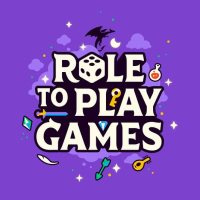The Assistant is a plot driven simulation game with a middle-aged perspective as its core, immersing players in a seemingly ordinary but undercurrent "life experiment" through workplace challenges, family puzzles, and moral choices. Its delicate narrative design, multiple endings, and real-life details provide players who enjoy deep plot and character growth with a highly immersive experience!
Unique middle-aged protagonist perspective
Background of the story: Developed by Backhole Games, players take on the role of a middle-aged man who serves as a personal assistant for a wealthy family. Despite his seemingly ordinary new job, he hides family secrets and life twists.
Plot suspense:
Workplace Challenge: Serve demanding employer families, handle unexpected situations and hidden conflicts.
Personal life: The protagonist's private life is intertwined with family tasks, triggering unexpected "surprises" (such as family secrets and moral choices).
Life simulation and plot driven gameplay
Core gameplay:
Task management: Balance job responsibilities (scheduling, crisis management) with personal life (family relationships, self growth).
Dialogue and Choice: Dialogue options affect the plot direction and trigger different endings (such as family reconciliation, protagonist self awakening, or tragic ending).
Multi line narrative:
Explore the background stories of affluent families and uncover hidden family conflicts, economic issues, or emotional entanglements.
Immersive Experience Design
Rich details:
Environmental interaction: Advance the plot by organizing files, answering phone calls, observing the behavior of family members, and other details.
Time management: Simulate the time pressure of real life, missing key events may lead to changes in plot branches.
Visual Style:
Realistic art style: Restoring the living scenes of the middle to wealthy class (luxury homes, offices, social occasions).
Core system
Moral and interest decision-making: Balancing employer interests with personal morality, influencing role relationships and outcomes.
Multiple endings design: Different choices lead to diverse endings of family fate and the protagonist's life.
Character Growth
Protagonist Development: The inner changes of a middle-aged protagonist, such as reflections on life and redefinition of family.
Family member portrayal: shaping distinct employer family roles (such as arrogant tycoons, rebellious children, mysterious butlers).




































Preview: